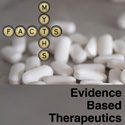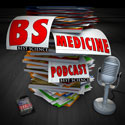Check out our new iPad app released to day MyStudies – www.mystudies.org. The app and 10 studies are free – hopefully it will give you enough of an idea of what we have created. To get all the studies requires a subscription. I would love it if you would check it out and support us – this is only a 1.0 version and we have lots of plans for updates in the future. I would also love feedback as to how to improve the app. I co-created it with the same guy who made the awesome iPhone/iPad app MedCalc. If you think it is useful PLEASE let all your friends and colleagues know. Thanks.
You want to use evidence in your clinical practice from the landmark studies – those studies that change practice. Your patient comes in and asks you about the latest greatest study. How can you quickly and easily get all that information? Let MyStudies help.
You are at a presentation and you start to wonder if the presenter is really telling you everything you need to know about a study. Did they just present relative numbers? Did they only present the benefits with no mention of harms? Did they come up with conclusions that don’t really match the results? MyStudies can help.
As a student/resident on rounds did you feel hopeless when someone asked you about the HOPE trial? Did you ever have to prove what was in the PROVE-IT study? Should you care what the CARE trial showed? Did not knowing the results of the TNT trial make you want to explode?
Have you wanted to enthusiastically let everybody know about the GUSTO trial? MyStudies is there for you.Have you ever had to make a presentation and not have time to look up all the studies and make slides to show the results? MyStudies was designed to help you with all this as well. MyStudies brings the results of hundreds of the major clinical studies to your fingertips.
We have done the work for you – all you have to do now is look at the results.


